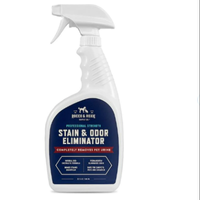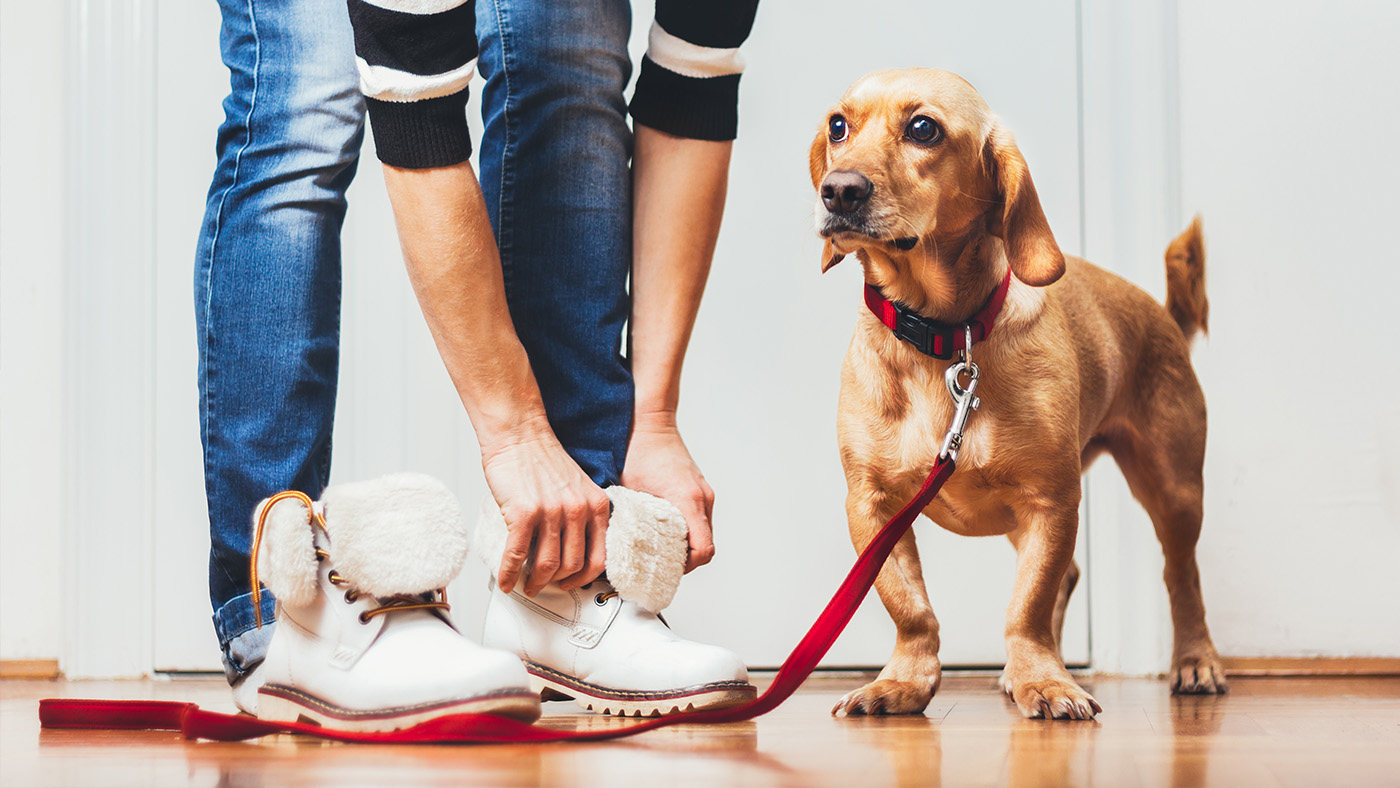Why does my dog pee on my bed? (and how can I stop it?)
Wondering ‘‘Why does my dog pee on my bed?”’ Here’s what it means and how to get them to stop.
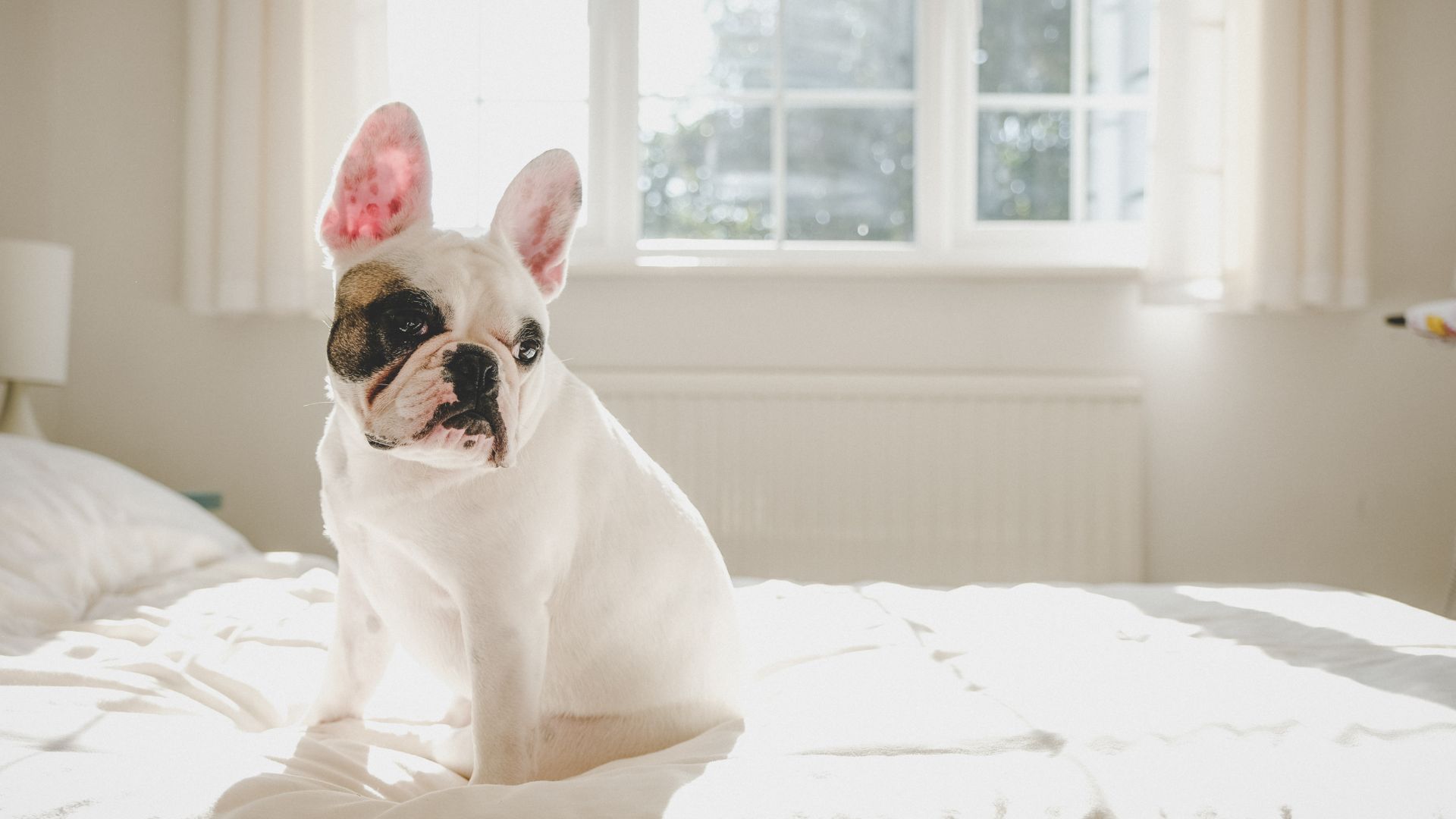
Are you spending hours searching, “Why does my dog pee on my bed?” Firstly, let us reassure you that you aren’t the only one. It can be frustrating when your pup keeps having accidents in the house, trust us.
The good thing is that there is usually a reason that this can be happening and there are several things you can do to minimize accidents in the house. A few reasons could include medical reasons, old age, or simply a dog marking the scent.
This could also simply be a hiccup in potty training, but this can easily remedied with consistency, and rewarding your pup with some of the best dog treats can’t hurt either. We spoke with vet, Dr. Lily Richards who broke down the most common reasons for accidents in the house and what we can do to help.
Why does my dog pee on my bed?
They have a medical issue
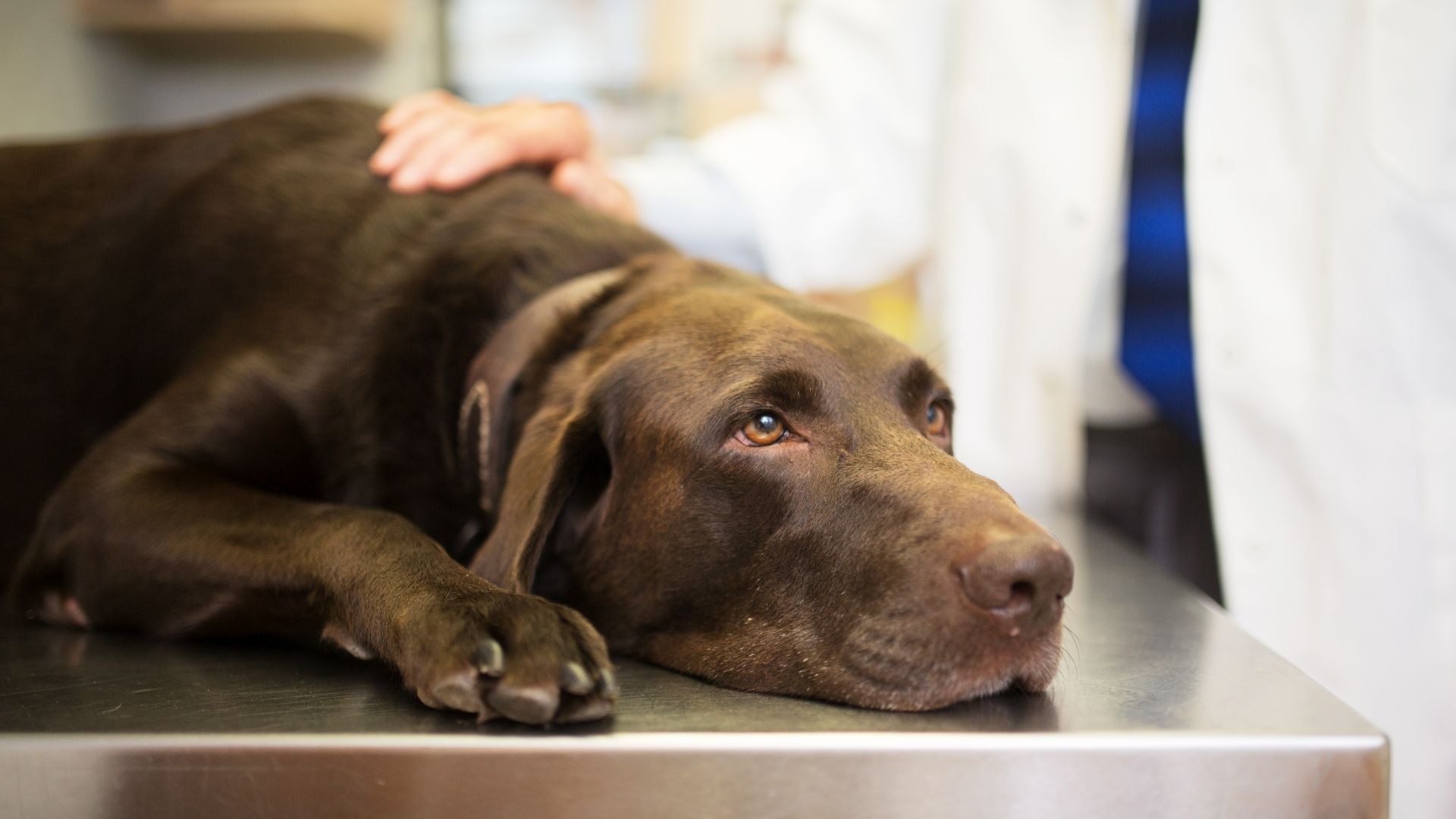
If your dog has never peed on your bed before but has suddenly started doing so, one of the first things to rule out is an underlying medical issue that could be causing them to lose control over their bladder.
There's a range of health problems that can cause urinary accidents, including kidney disease, diabetes, Cushing’s disease, and urinary tract infections. Dr. Lily Richards says, ‘Signs of urinary infection include frequent small urine accidents with or without visible blood often with discomfort on passing urine. Urinary incontinence generally shows with your dog being unaware of passing urine, often finding a puddle after they’ve been resting. Diabetes or kidney disease leads to excessive thirst and therefore excessive urination which needs investigation and treatment by your vet.’
Many of these can be treated by your vet with medications and dietary changes, so it’s worth making an appointment as soon as possible.
Another common issue in senior dogs is arthritis and while this doesn’t in itself cause a loss of bladder control, it can make moving around painful, which can slow your pooch down and mean they’re less likely to make it outside in time and more likely to pee wherever they’re sitting.
They’re feeling excited or anxious
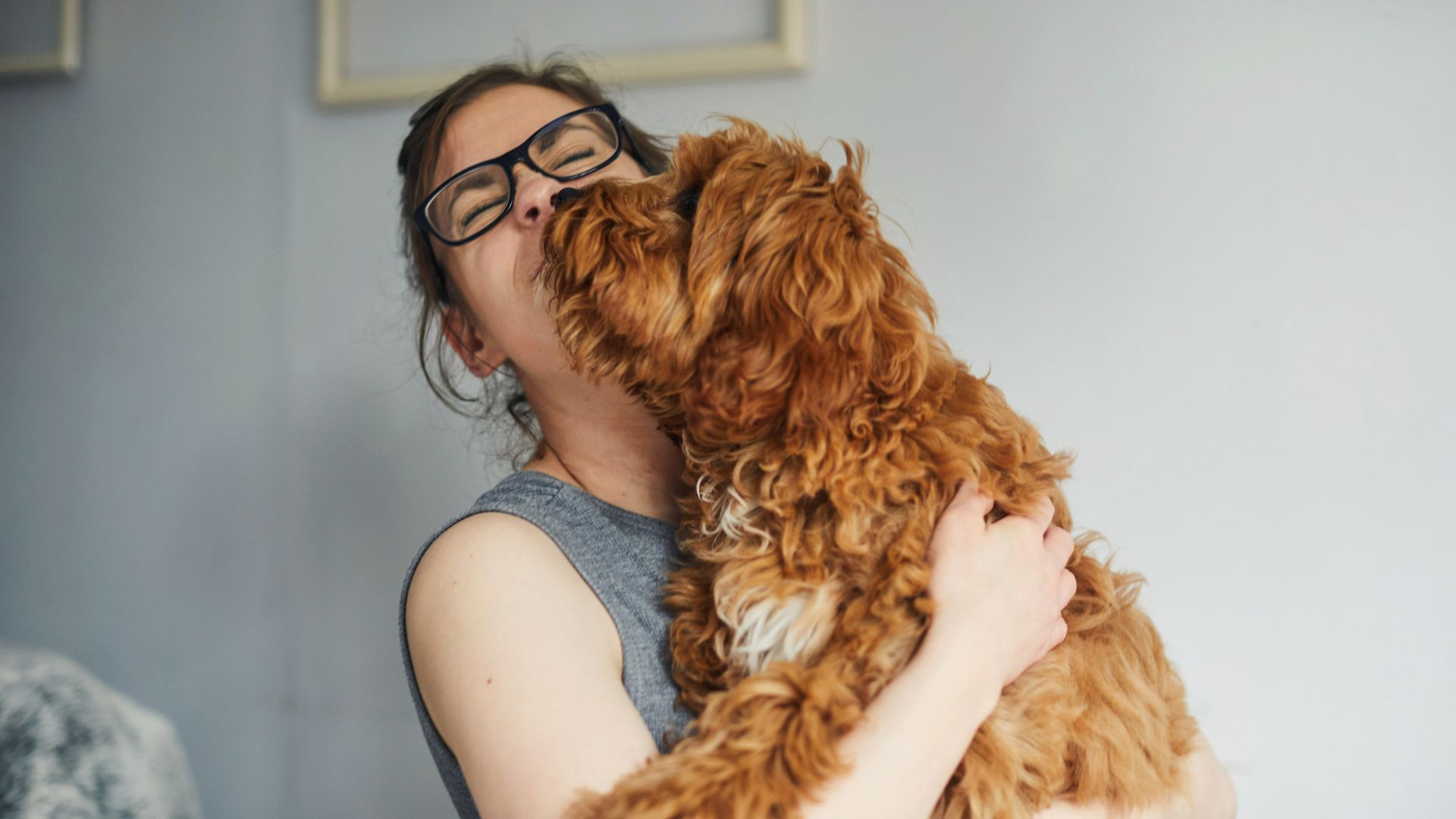
Strong emotions are another common reason your dog may suddenly pee on your bed. Excitement can cause some hounds to dribble urine and while this is most likely to happen in younger dogs, some adult dogs will experience this too.
You may also notice that it happens when your dog is feeling scared, stressed, or anxious and this is often triggered by changes in their routine or living environment. If you’ve recently had houseguests, have welcomed a new pet or child into the family or your home has been undergoing renovations, these things may trigger a stress response in your pup.
You’ll probably find that the behavior stops once your dog’s routine or environment returns to normal, but if you notice they’re continuing to urinate on your bed (or elsewhere) after things have settled down, it’s worth taking them to the vet for a checkup.
Marking their territory
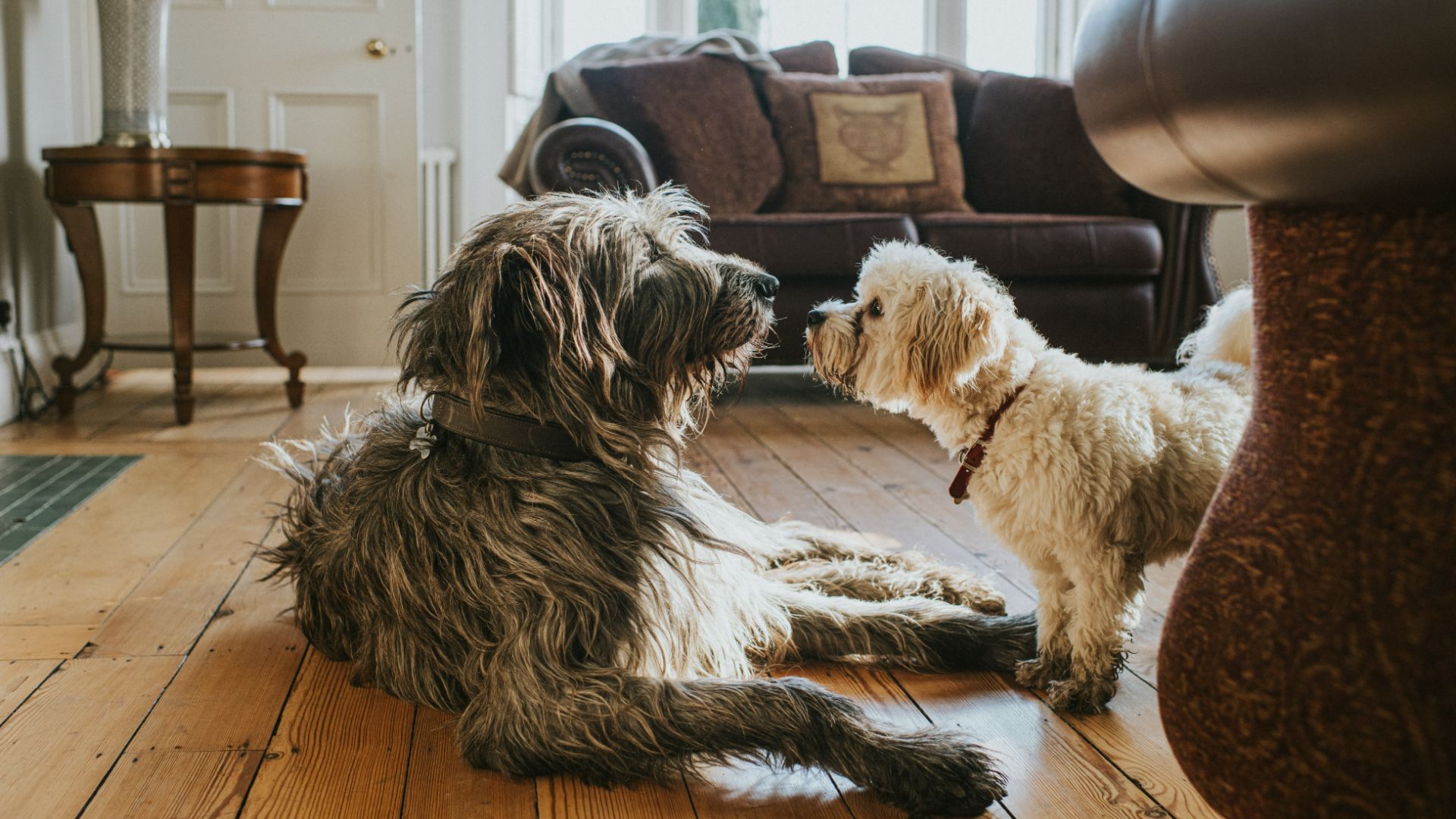
Dogs love to mark their territory and unfortunately, this marking behavior will often extend to furniture in the home. If your dog is releasing small amounts of urine onto your bed as opposed to emptying their entire bladder, then what you’re likely seeing is urine marking.
This kind of behavior is most common in male dogs, although female dogs may also do it, and puppies will do it a lot if they haven’t been spayed or neutered. While it’s more than a little annoying, your dog isn’t doing it to upset you but rather to reassure themself that this particular space belongs to them.
Incontinence
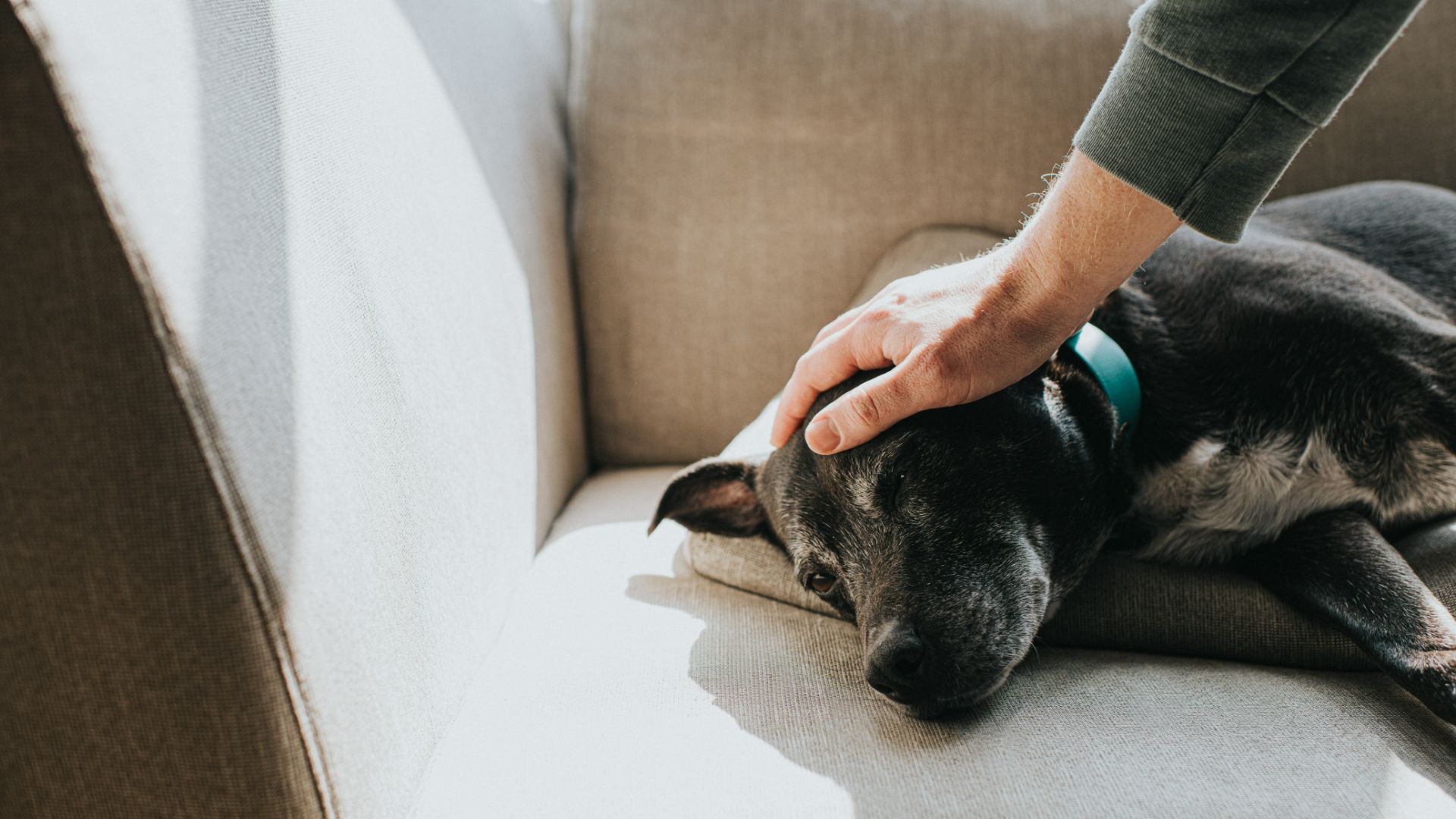
It’s not always fun growing old and for senior dogs, incontinence is one of many issues they often have to deal with. While it can happen in both sexes, incontinence is more common in female dogs who, as they age, tend to lose control of the neck of their bladder.
Dogs can also experience dementia as they age which can result in confusion and cause them to forget their house training. Both old age and dementia can cause dogs to leak urine involuntarily, both when they’re asleep, and when they’re awake.
“Older dogs can struggle with cognitive dysfunction/ dementia, simply forgetting where to go or being less aware of needing to go. Often there is an underlying anxiety due to complications of aging. Older female spayed dogs can also suffer from a bladder disorder called USMI (Urinary Sphincter Mechanism Insufficiency), whereby the bladder becomes leaky. It is treatable with medication,” says Dr. Lily Richards.
If you have a young puppy, you may also find incontinence to be an issue, but it’s unlikely that there’s any reason for alarm here. Learning how to potty train a puppy can take some time and it’s normal for them to have accidents around the house until they have control over their bladder.
They need more bathroom breaks
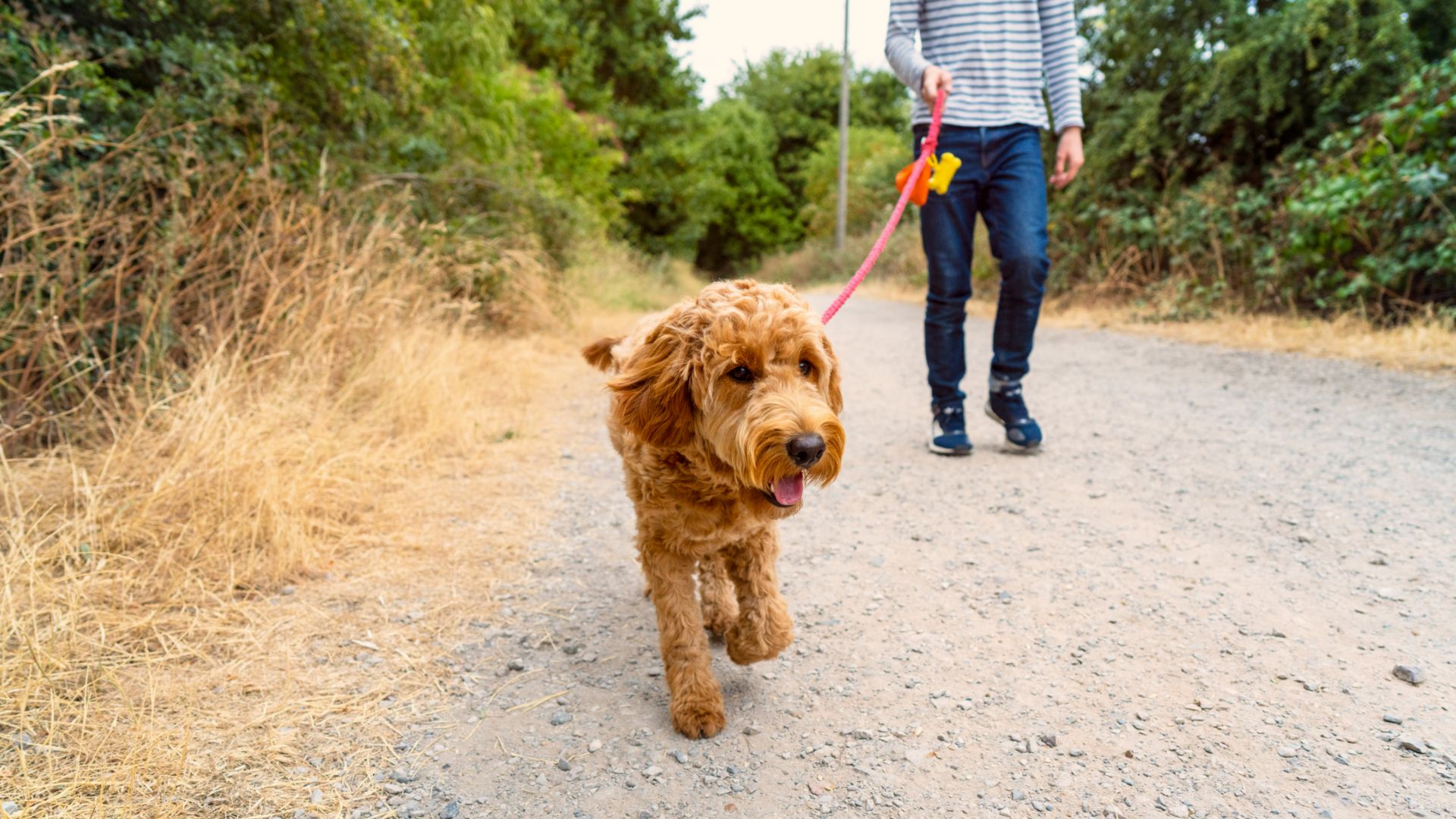
Sometimes peeing on the bed is simply a case of needing more bathroom breaks during the day. Every dog is different and some need to empty their bladder more frequently than others.
If you’re finding your dog is peeing on your bed, try taking him out for an extra bathroom break. This is particularly helpful after mealtimes and before bed, where the need to urinate is more likely.
Remember that puppies can’t hold their bladders for anywhere near as long as adult dogs, so they’ll need to be taken out much more frequently. A good rule of thumb when it comes to puppies is to take their age and add one, which will give you an idea of how often they need a bathroom break. So, a two-month-old puppy will usually be able to wait three hours between potty breaks.
How to stop your dog from peeing on your bed
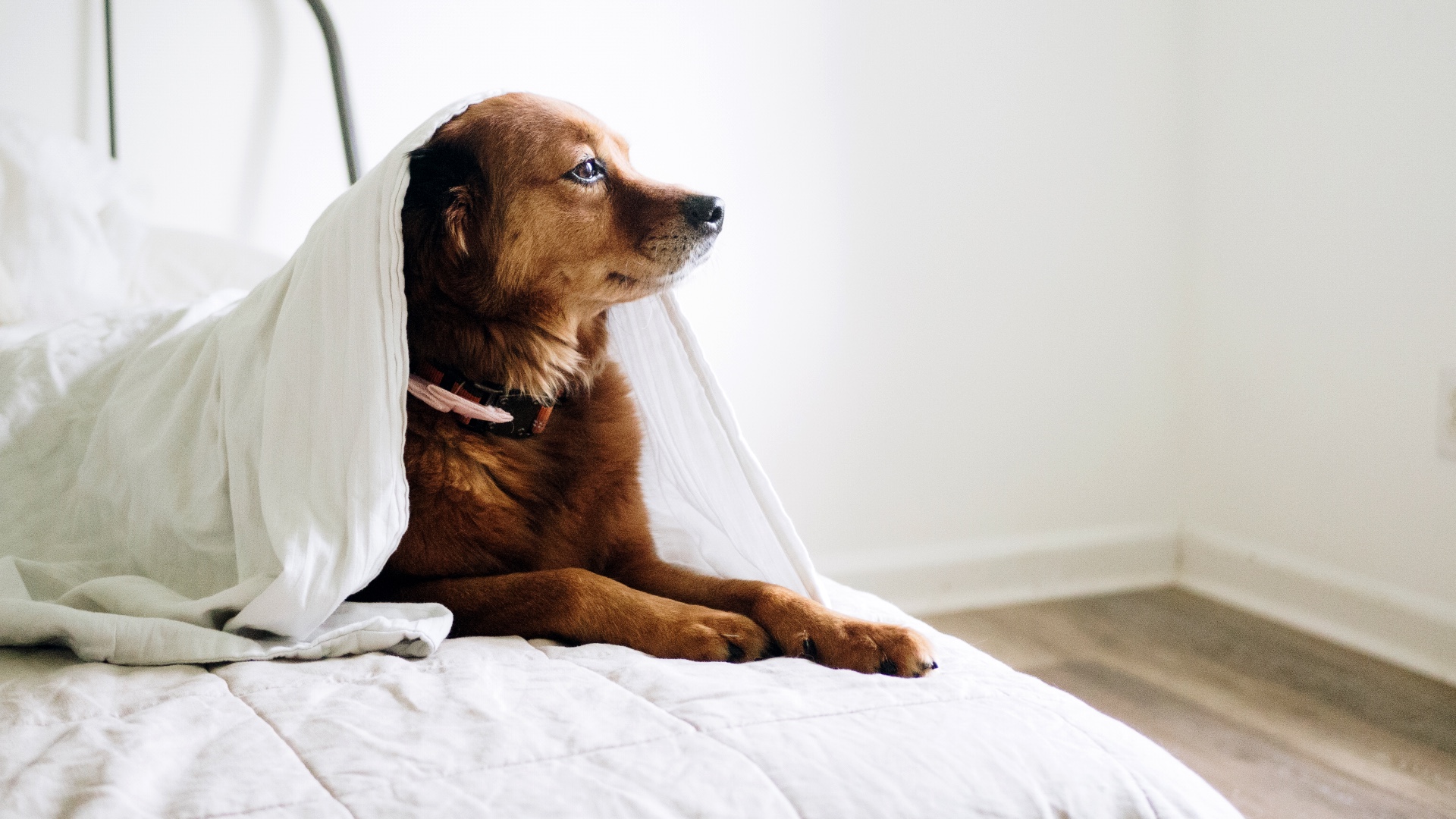
Consult a vet
If your dog is peeing on your bed and it’s happening regularly, the first port of call is your vet. They’ll be able to do a physical examination, run some tests to rule out any underlying health conditions, and advise you on the best course of action.
Plenty of bathroom breaks
Once you’ve ruled out a medical issue, the next thing is to make sure your dog is getting enough bathroom breaks. It’s better to err on the side of caution and take your pup out more frequently as this will reduce the likelihood of them having an accident. Key times are when they’ve just woken up, after meals, and before bed.
Restrict access to your bedroom
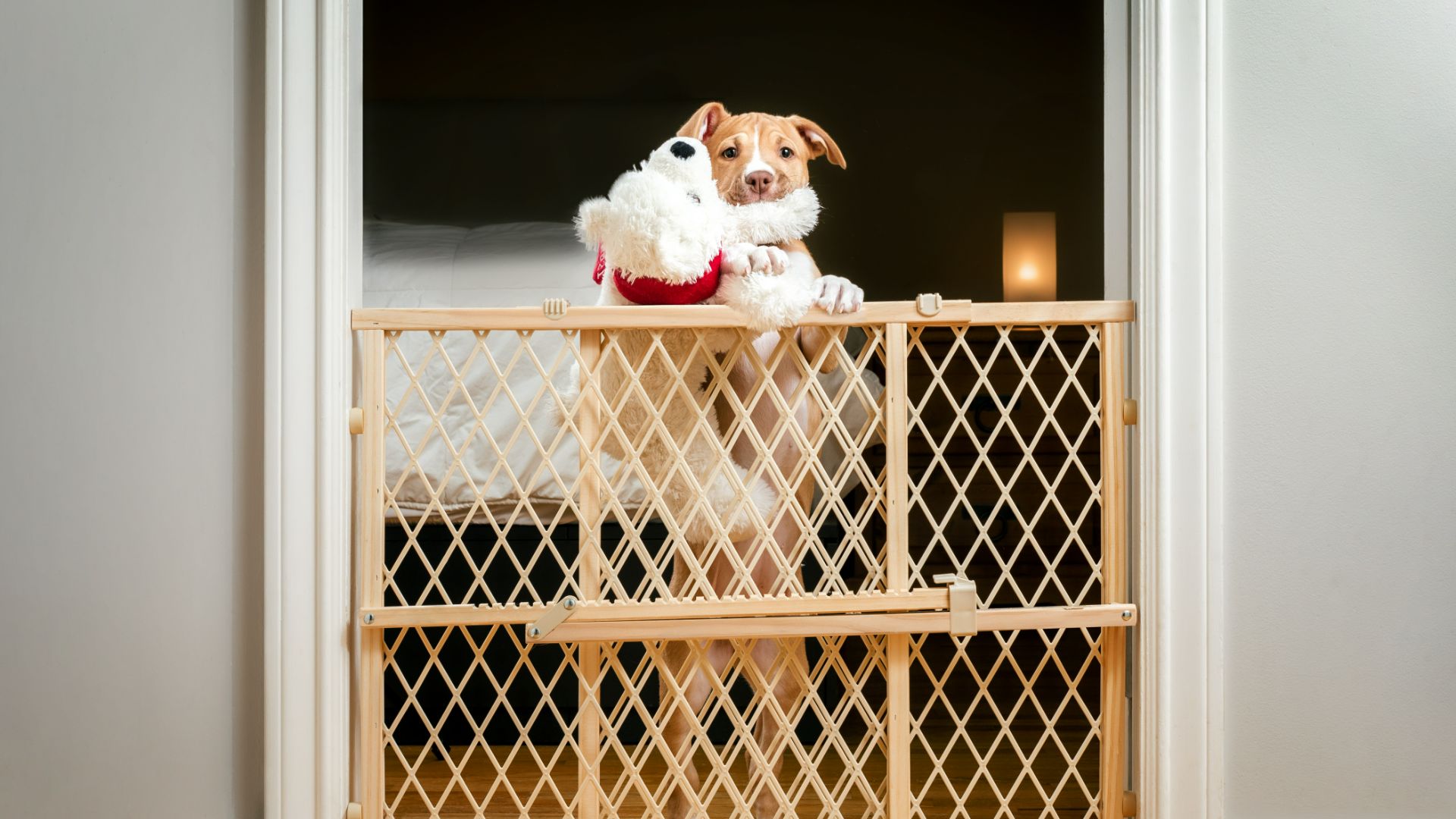
The easiest way to stop your dog from peeing on your bed is to restrict their access to it. Keep your bedroom door closed and if you must let your dog in, do so only when you’re around to keep an eye on them.
Crate training
We recommend all pet parents learn how to crate train a dog as this can be a helpful way of keeping accidents in a space that’s easy to clean as opposed to having them happen on your bed or other places around the home.
Far from being a punishment, spending time in a crate can actually be helpful for anxious or senior dogs who may be peeing because they’re feeling insecure or unsettled. A crate can serve as a safe space for them to relax in and can provide them with a sense of comfort, especially when you use one of the best dog crates.
Behaviour modification training
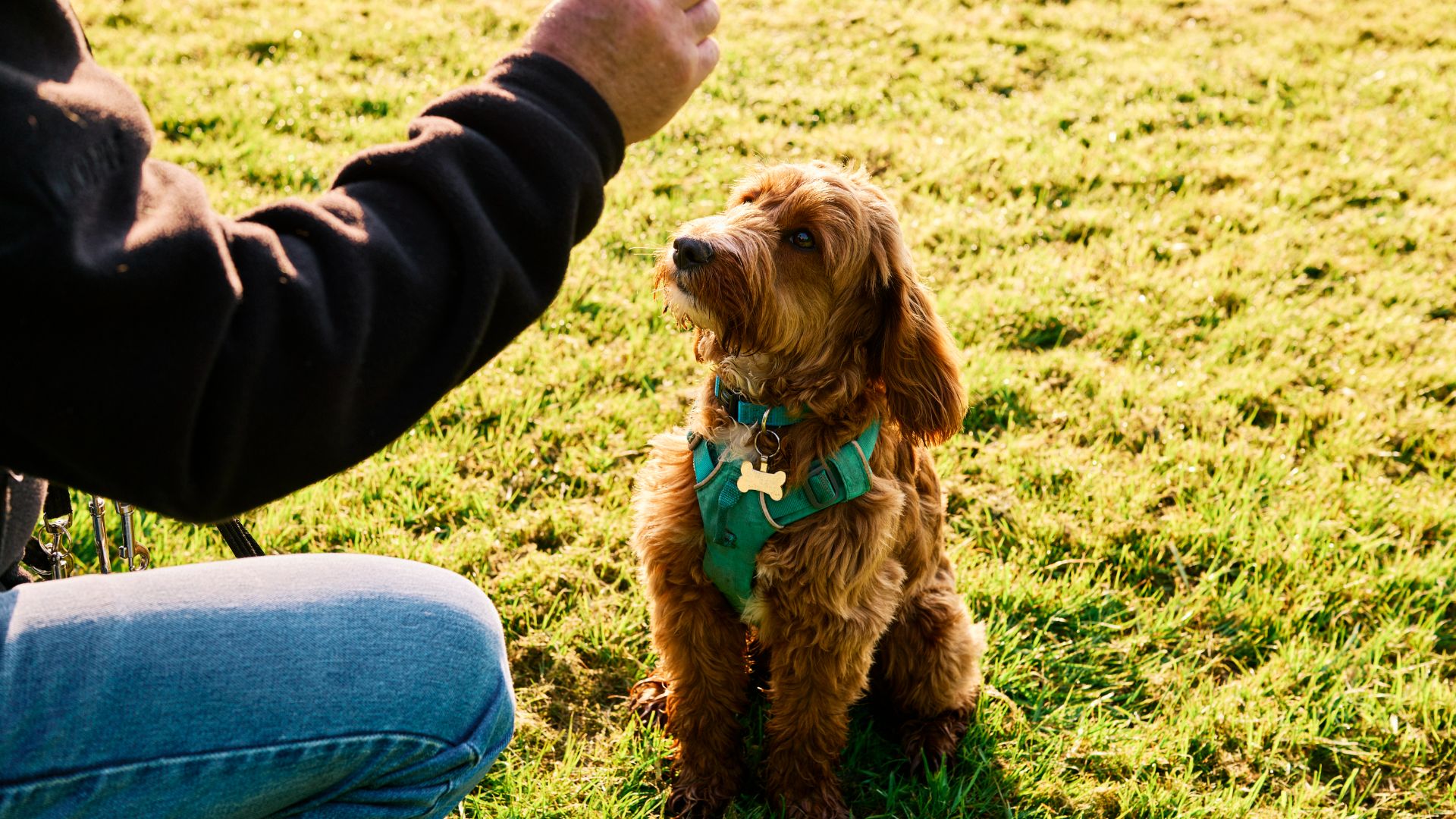
For dogs who have been potty trained but seem to have started peeing in the house again as a way to mark their territory, behavior modification training may be needed to stamp this out.
If you catch your dog in the act of peeing on your bed, interrupt them with a loud clap of your hands and immediately take them outside to finish their business. Once they’re done, use positive reinforcement in the form of verbal praise and the best long lasting dog chews to reward them for good behavior.
Resist the temptation to scold your dog or punish them for peeing - just like us humans, our canine companions respond a lot better to being rewarded for positive behaviors than being told off for negative ones.
Thoroughly clean up all accidents
You’re probably already all over this one but it’s worth pointing out that dogs have a sense of smell far greater than humans and if they can smell their urine, they’re more likely to want to pee in the same spot again.
When cleaning up after your dog, use an enzyme-based pet stain and odor remover that will absorb the smell completely as this will reduce the chance that they keep coming back to your bed to do their business.
Rocco & Roxie Supply Co. Professional Strength Pet Stain & Odor Eliminator
A natural and bio-enzymatic formula removes even the toughest stains and strongest odors. This stain remover is free from chlorine and other harmful chemicals. So you can rest easy knowing your pet is safe and your home stays smelling fresh.
PetsRadar Newsletter
Get the best advice, tips and top tech for your beloved Pets

Kathryn is a freelance writer who has been a member of the PetsRadar family since it launched in 2020. Highly experienced in her field, she's driven by a desire to provide pet parents with accurate, timely, and informative content that enables them to provide their fur friends with everything they need to thrive. Kathryn works closely with vets and trainers to ensure all articles offer the most up-to-date information across a range of pet-related fields, from insights into health and behavior issues to tips on products and training. When she’s not busy crafting the perfect sentence for her features, buying guides and news pieces, she can be found hanging out with her family (which includes one super sassy cat), drinking copious amounts of Jasmine tea and reading all the books.
